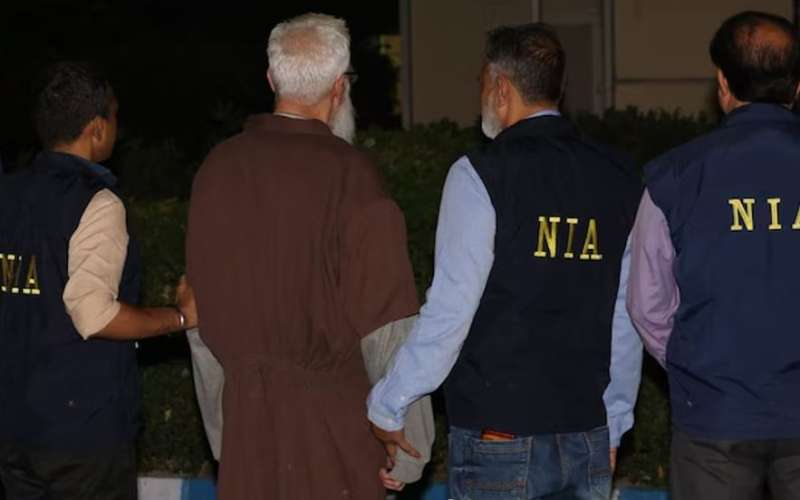New Delhi: The man who conspired one of the darkest chapters in India’s history — the 26/11 Mumbai terror attacks — is now finally in Indian custody. Terrorist Tahawwur Rana, the accused mastermind, has been brought to India from the United States after a 17-year-long legal and diplomatic battle. He will now face trial on Indian soil for the bloodshed and horror he helped orchestrate.
But who exactly is Tahawwur Rana?
How did he become one of India’s most wanted terrorists?
Why did it take nearly two decades to extradite him from the US?
And what lies ahead for him now?
Here’s the full story of India’s biggest diplomatic strike yet.
On Wednesday, a joint team of India’s premier investigative agency NIA and the intelligence agency RAW flew to the US to bring Tahawwur Rana back to India in a specially secured aircraft. This aircraft landed today at Delhi’s Palam Airport under intense security arrangements. As soon as the plane touched down, NIA formally took Rana into custody.
He is expected to be produced in Patiala House Court after a medical examination. For now, he will be held in Tihar Jail’s high-security ward, where special arrangements have been made for his detention.
But who is Tahawwur Rana, and why is he considered the brain behind the 26/11 attacks?
Born in Pakistan, Rana studied at the Army Medical College and served for over a decade in the Pakistani army as a doctor. Unhappy with his profession, he eventually left the military and moved to Canada, where he became a citizen and established an immigration services business. According to legal documents, Rana has lived and travelled in Canada, Pakistan, Germany, and the UK, and is fluent in nearly seven languages.
Between 2006 and 2008, he conspired with David Headley and others, providing crucial assistance to terrorist groups like Lashkar-e-Taiba and Harkat-ul-Jihad-al-Islami, helping plan the Mumbai attacks. That’s why Rana is not just an accomplice — he’s seen as one of the masterminds behind the operation.
To fight the legal battle for his extradition, the Indian government appointed Advocate Narendra Mann as the Special Public Prosecutor for three years or until the trial concludes.
Rana had made every attempt to avoid extradition. He filed a plea in the U.S. Supreme Court, citing his Parkinson’s disease and fears of torture in India due to his Pakistani Muslim identity. He even referenced the 2023 Human Rights Watch World Report, claiming religious discrimination under the current Indian government. But all his petitions were rejected.
After 17 long years — backed by solid evidence, persistent diplomacy, and unwavering intent, India has finally brought back Tahawwur Rana. The wounds of 26/11 — the screams, the bullets, the innocent lives lost — are still fresh for those who lost their loved ones. But now, justice is knocking on Rana’s door.
India has once again shown the world:
Those who dare attack us will be hunted down, no matter where they hide.
And justice will be served.
This isn’t just an arrest — it’s a historic blow to terrorism, and a testament to India’s relentless pursuit of justice.


